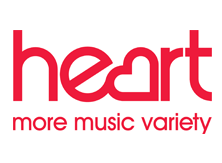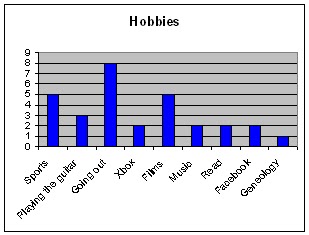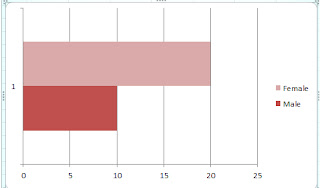Georgia Flynn
G324 Advanced Portfolio in Media
Wednesday, 5 January 2011
Creating the radio trailer
THESE ARE THE STATIONS IN WHICH OUR RADIO ADVERT WILL APPEAR ON. HEART AND SMOOTH IN PARTICULAR BECAUSE THEY BROADCAST ALL OVER THE COUNTRY.
SMOOTH RADIO BROADCAST THEIR OWN DOCUMENTARIES EVERY SUNDAY FROM 1PM . THEREFORE THIS IS THE TYPE OF SHOW OUR RADIO ADVERT WOULD BE BROADCAST ON.
Wednesday, 22 December 2010
Screenshots of editing process
Screenshots of us editing different things.
Editing interview cutaways
Editing transitions
Making the news paper advert
Making the radio trailer
Making the montage
These are photographs our of our drawings planning the newspaper advert
Tuesday, 14 December 2010
Filming Process
This is a picture of our video log list. It lists all of the filming we did, how long the shot was and whether or not we thought it was a good take. This was helpful as we then knew exactly what we had filmed for the editing process.
Radio Trailer Script
Are you sitting comfortably? Right then we will begin...
Catherine Cookson .. Never look away (CLIP FROM VOXPOP)
So many people love getting lost in a book but why is it that reading has become less popular for the younger generation over the past few years?
HOPE INTERVIEW CLIP: I dont really like reading...
MR MORRIS CLIP: Fire up students imagination ...
Would society be lost without books? Are computer games beginning to turn the nation's youth turning into illiterates?
Once upon a time . Wednesday 8pm on ITV1
Catherine Cookson .. Never look away (CLIP FROM VOXPOP)
So many people love getting lost in a book but why is it that reading has become less popular for the younger generation over the past few years?
HOPE INTERVIEW CLIP: I dont really like reading...
MR MORRIS CLIP: Fire up students imagination ...
Would society be lost without books? Are computer games beginning to turn the nation's youth turning into illiterates?
Once upon a time . Wednesday 8pm on ITV1
Editing Process
This is a short clip of us editing using Premiere Pro 1.5. In this clip we are editing the interview of a young child.
Thursday, 9 December 2010
Filming Interviews
These pictures are from when we filmed the interview with the teenager. The images show us setting up the video camera and tripod so that the framing was correct. Also setting it in a place where the mis-en-scene was approporiate to the interview. The other pictures are then of us recording the interview.
Friday, 3 December 2010
Ancillary Texts
CODES AND CONVENTIONS OF A NEWSPAPER PRINT ADVERT:
Conventionally a newspaper advert is A4 landscape. This is so it can then be adapted to different forms of media.
The newspaper advert must include certain things about the documentary
- TIME AND DATE OF PROGRAMME
- TITLE
- CATCHING SLOGAN
- AN INTERESTING IMAGE WHICH WILL ATTRACT THE AUDIENCE
Here are some examples of print adverts
Conventionally a newspaper advert is A4 landscape. This is so it can then be adapted to different forms of media.
The newspaper advert must include certain things about the documentary
- TIME AND DATE OF PROGRAMME
- TITLE
- CATCHING SLOGAN
- AN INTERESTING IMAGE WHICH WILL ATTRACT THE AUDIENCE
Here are some examples of print adverts
Ancillary Tasks: Radio Adverts
RADIO TRAILER TO PROMOTE YOUR DOCUMENTARY
> Codes and conventions
> Dual Purpose ( Cleverly done )
BBC TRAILER ON WEATHER:
- Sound effects (Different weathers)
- John Kettley (Main BBC weatherman) Voiceover
- Female voiceover at the end about scheduling "coming soon > Channel "
- SFX would match what he is saying (Sounds like he is actually there)
- Humour in the script
- Sound Levels
DOCUMENTARY ABOUT THE QUEEN:
- Voiceover (man voice)
- Music bed
- Voice clips from documentary
STEPHEN FRY:
- Music bed
- Posh man voiceover (Stephen Fry talking about the subjects he will discuss)
- Animal SFX (quiet) .. sounds as if he is telling a story
- Posh woman voiceover ( Title andschedule) - Calm/peaceful delivery
SPECIAL NEEDS PETS:
- Clip from programme
- Music bed throughout
- Alliteration
- Woman voiceover at the end
- People arguing
- Silly/Querky music bed
- Voice over is intercut with the extracts
> poses questions for the audience & intrigues them
> scheduling is always at the end
INTERNATIONAL DOCUMENTARY:
- guitar music bed
- cannot understand peoples voices/accents
- different voices are put together to tell a story
CODES AND CONVENTIONS OF A DOCUMENTARY RADIO TRAILER
- Extracts from the programme
- voiceover intercut throughout
- trailer should intrique the audience - make them want to know more
- must have scheduling information at the end
TITLE - DAY - TIME - CHANNEL
- must contain a music bed where appropriate
- 30 to 40 seconds long
- must include a slogan
> Codes and conventions
> Dual Purpose ( Cleverly done )
BBC TRAILER ON WEATHER:
- Sound effects (Different weathers)
- John Kettley (Main BBC weatherman) Voiceover
- Female voiceover at the end about scheduling "coming soon > Channel "
- SFX would match what he is saying (Sounds like he is actually there)
- Humour in the script
- Sound Levels
DOCUMENTARY ABOUT THE QUEEN:
- Voiceover (man voice)
- Music bed
- Voice clips from documentary
STEPHEN FRY:
- Music bed
- Posh man voiceover (Stephen Fry talking about the subjects he will discuss)
- Animal SFX (quiet) .. sounds as if he is telling a story
- Posh woman voiceover ( Title andschedule) - Calm/peaceful delivery
SPECIAL NEEDS PETS:
- Clip from programme
- Music bed throughout
- Alliteration
- Woman voiceover at the end
- People arguing
- Silly/Querky music bed
- Voice over is intercut with the extracts
> poses questions for the audience & intrigues them
> scheduling is always at the end
INTERNATIONAL DOCUMENTARY:
- guitar music bed
- cannot understand peoples voices/accents
- different voices are put together to tell a story
CODES AND CONVENTIONS OF A DOCUMENTARY RADIO TRAILER
- Extracts from the programme
- voiceover intercut throughout
- trailer should intrique the audience - make them want to know more
- must have scheduling information at the end
TITLE - DAY - TIME - CHANNEL
- must contain a music bed where appropriate
- 30 to 40 seconds long
- must include a slogan
Monday, 29 November 2010
Saturday, 13 November 2010
Thursday, 11 November 2010
Tuesday, 9 November 2010
Research
Research from the guardian about libraries and their importance to the public.
These are pictures of youtube videos we looked at in order to gain research
Monday, 18 October 2010
Conducting Interviews
These are images of us filming an interview. After filming this interview we decided to re-film it in a different location as it was in an open space the sound was distorted and there was too much distracting background noise. The framing of the interview also wasnt very good.
Interview Questions
Young Child:
1) Tell me about your favourite book?
2) Do you like to read and why?
3) Tell me about the amount you read in school
4) What do you like about reading?
5) Do you prefer to read to yourself or have a parent read for you and why?
6) Is reading something you find hard? Why?
7) Tell me about how often you read
8) If you could write a book, what would you write about and why?
Interview with author:
1)What was your inspiration to become an author??
2)What is your favourite think about writting books?
3)Do you feel your books make an impact on you readers?
4)Do you feel that reading is less popular from when you began writting? How?
5)Do you remember the first book you read? What was it?
6)What age did you start writting?
7)What motivated you to start writing?
8)How did you learn to read?
9)What is your favourite book?
1) Tell me about your favourite book?
2) Do you like to read and why?
3) Tell me about the amount you read in school
4) What do you like about reading?
5) Do you prefer to read to yourself or have a parent read for you and why?
6) Is reading something you find hard? Why?
7) Tell me about how often you read
8) If you could write a book, what would you write about and why?
Interview with author:
1)What was your inspiration to become an author??
2)What is your favourite think about writting books?
3)Do you feel your books make an impact on you readers?
4)Do you feel that reading is less popular from when you began writting? How?
5)Do you remember the first book you read? What was it?
6)What age did you start writting?
7)What motivated you to start writing?
8)How did you learn to read?
9)What is your favourite book?
Wednesday, 6 October 2010
Research and Planning
Questionnaire Results
How old are you?
Our questionnaire could be percieved as biast as most of the age range are between 16 and 20.
What is your favourite song?
This question was asked to give us more of an idea of what songs to include in the documentary.
Do you prefer films or books ?This supports our documentary as we are trying to show that films are much more popular than books.
This shows that are questionnaire is slightly biast as twice as many females answered than males.
What is your occupation?This gives us an insight into what backgrounds the people who answered our survey are from.
This also backs up the message of our documentary that the decrease in reading has led to a decrease in the standard of english.
What do you associate with reading?
This was asked to try and discover the reason why people do not read as much.
When did you last buy a book ?
This data supports our documentary, that proves people do not read as much as they used to.
Why do you think books have become less popular?This question tries to discover why books have become less popular which adds to the subject of our documentary.
This question was to help us with our scheduling, deciding what day to have our documentary on.
Do you read?Another question to reinforce the subject of our documentary.
This question was asked to discover whether technology has had an impact on books.
This again was to help with our TV scheduling.
What is your favourite colour?
This question was to help us when choosing what colour we could use for graphics in our documentary.
Subscribe to:
Comments (Atom)






























































